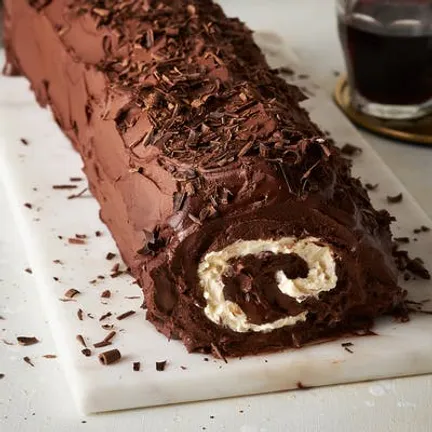Tips for a joyful low-carb Christmas!
- Dec 7, 2023
- 4 min read
Updated: Jan 17
The real joy of Christmas is enjoying the company of family and friends, playing games, going for walks, watching TV, relaxing, laughing and giving and receiving gifts – it doesn’t have to revolve around food! Yes, food is important, but you can enjoy some festive fare without having to overindulge or fall off the low-carb wagon. Here are some tips to help you get the best out of your low-carb Christmas this year….

Planning your Christmas dinner:
(all recipe images are clickable)
Focus on what you can eat rather than what you can’t. There are plenty of Christmas inspired foods you can eat. Most of Christmas dinner can be low-carb e.g. Turkey or other meats, Brussel sprouts, peas, a few carrots, pigs in blankets.
For vegetarians a low-carb nut roast is great, and a wonderful piece of salmon would be ideal for pescatarians!
Add in your carb substitutes: roast or mashed celeriac, or mashed cauliflower instead of potatoes, your family and friends may not even notice the difference!
Instead of Christmas pudding make something like this low carb orange and gingerbread cheesecake from Diet Doctor:
Instead of Christmas cake you could make this low-carb Yule log from Diet doctor:
Do you fancy a glass of mulled wine at Christmas, who can resist the delicious fragrance of all those Christmassy spices! But mulled wine is generally very sugary. However, you don't need to miss out if you make this low-carb version - you can make it with alcoholic or non-alcoholic wine:
Mince pies are a favourite at Christmas so instead of going without, try this low-carb version from the Low-carb kitchen
Eating out/Christmas parties:
Plan ahead! You have less control over what you eat when you are eating away from home, so a bit of planning is needed. If you are unsure whether the party food on offer is going to be suitable then pack a few of your own snacks into a bag and subtly eat those.
Choose carefully from your host’s selection, there will probably be some things you can eat such as meat-based kebabs, cheese, salads or prawns.
Try and avoid party food that is covered in batter or breadcrumbs or contains pastry such as vol-u-vents.
Practice saying, “I don’t eat that” rather than “I can’t eat that”. The former sounds like a positive health decision and your host may admire your willpower, whereas the latter sounds like an externally imposed restriction which may lead your host to say, “oh go on, of course you can, its Christmas!”. Could you resist that pressure?
Be careful around alcohol. A glass of wine or a gin and tonic is fine if it helps you feel part of the celebrations. Avoid the punch even if it’s non-alcoholic because it will be full of sweetened mixers such as fruit juice or lemonade. The best soft drinks are either tap water or carbonated water without any flavourings.
Offer to be the designated driver.
Practice saying “No thank you” when offered food you don’t want to eat – you are not obliged to eat free food if you don’t want to.
Hosting your own party:
There are lots of low-carb finger food options if you are hosting your own party, try some of the recipes from the Step Away From the Carbs website. Your guests may not even notice there are no carbs if the foods you provide are delicious, and no doubt more nutritious than the usual party fare!
If you feel obliged to provide some carb-based snacks for your guests, then arrange the table with the low-carb foods on one side and the high-carb foods on the other so you can easily find the foods you want to eat and you can stay away from the carby end of the table!
Try and stick with your usual eating times:
Try and stick with your low-carb eating pattern. If you eat 2 meals a day, try and stick to it. Likewise, try and keep to your time-restricted eating window as much as you can. The more of your usual routine you can follow the better. This means you won't have to try and 'get back to normal' after Christmas because you will never have left your new normal!
If you need to snack make sure its on nuts, cheese or olives, or other permissible foods
If you get a sugar craving then eat something bitter to take it away such as a teaspoon of apple cider vinegar, lemon peel, black coffee, dandelion tea, green veggies or put a pinch of salt under your tongue. Bitter foods interact with receptors in your gut to increase the secretion of the appetite suppressing hormone cholecystokinin (CCK)
Drink plenty of water so that you don’t confuse thirst for hunger.
If you feel overwhelmed with temptation at Christmas just keep reminding yourself of why you have chosen this lifestyle and what benefits you are gaining from it such as less bloating, less joint pain, lower blood pressure, more stable blood sugars, no energy slumps, a greater sense of control and improved mental well-being. Focus on the joy of being with family and friends, offer to organise some games or arrange a family walk to keep you distracted from food. You can still enjoy yourself at Christmas without sabotaging your longer-term goals.
Merry Christmas!

.png)





Commentaires